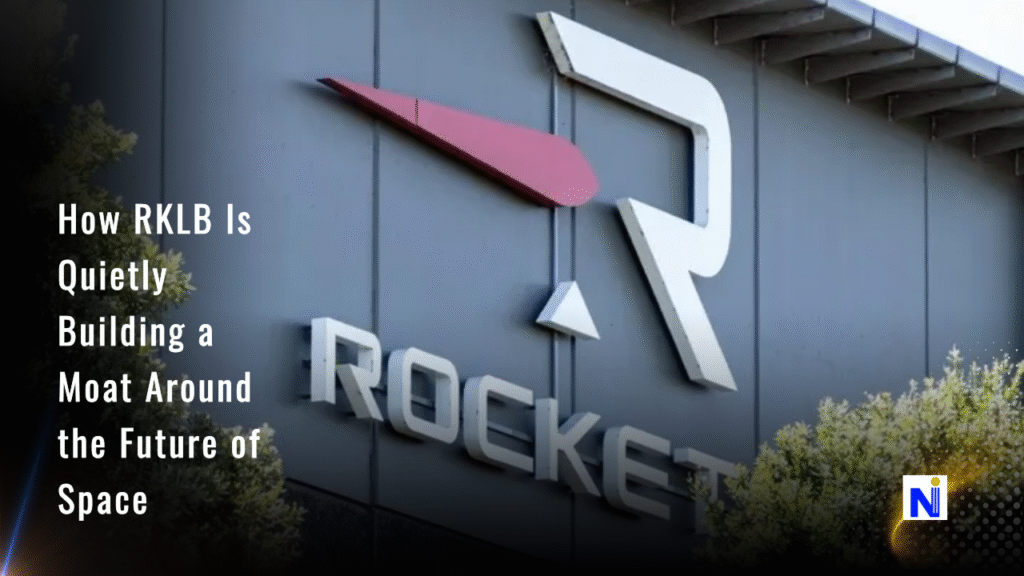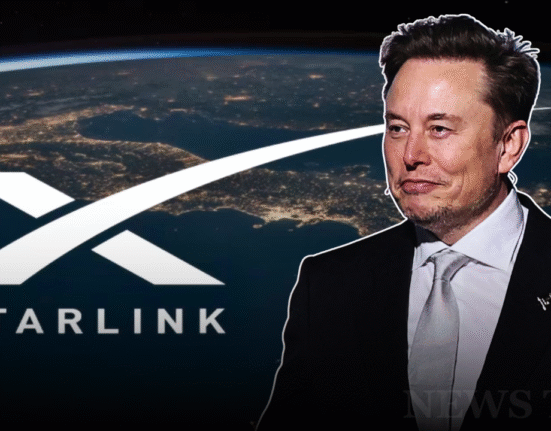
Rocket Lab’s Quiet Revolution: The Real Reason RKLB Stock Keeps Soaring
Every once in a while, a stock breaks out not because of a flashy earnings beat, but because it’s quietly laying the foundation for something much bigger. That’s the case with RKLB, the ticker for Rocket Lab Corporation. Sure, launching rockets sounds cool (and it is), but there’s a much deeper—and far more profitable—story unfolding behind the scenes.
RKLB stock has surged over 67% since its last bullish call, outpacing the S&P 500’s 6% gain tenfold. But this isn’t just momentum. Rocket Lab is building an underappreciated moat that could redefine the economics of the space industry. And no, it’s not just about getting stuff into orbit.
Let’s break down why Rocket Lab may be one of the smartest bets in the new space economy.
The Hidden Moat: Space Data as a Service
From Hardware to Recurring Revenue
Rocket Lab is transitioning from being a hardware-heavy launch company to one that monetizes space data as a service. That means every satellite launched is no longer just a sale; it becomes a revenue-generating node.
“Every piece of orbital hardware becomes a long-term data faucet,” says space analyst Karen Trinh of OrbitalIQ. “And RKLB is plumbing the entire system.”
Here’s how it works:
- They build the bus (the satellite’s body)
- They add solar panels, radios, and soon laser comms via Mynaric
- These satellites relay valuable sensor and positioning data
- That data is sold to sovereign clients, climate researchers, and defense agencies
This is the real moat. Competitors may match Rocket Lab’s launch cadence, but few can replicate this vertically integrated data economy.
Rocket Lab’s Secret Weapon: Neutron
The Neutron rocket could be a game-changer—not just in terms of payload, but in unlocking billions in government contracts.
NSSL Phase 3: A $5.6 Billion Prize
Rocket Lab’s success with Neutron would qualify it for NSSL Phase 3 Line 1, a $5.6 billion opportunity. But it’s not just a prize; it’s a margin anchor.
CEO Peter Beck noted, “Winning that contract is more than revenue—it’s how we fund future innovation.”
If Neutron launches successfully and hits reusability targets, Rocket Lab shifts from being just another space company to a core player in national security infrastructure. That means:
- Bigger missions
- More credibility
- Better margins
But delays could hurt—especially since Neutron is key to absorbing fixed costs that currently drag margins.
| Metric | Q1 2025 Result |
|---|---|
| Revenue Guidance Q2 | $130–$140 million |
| Gross Margin | 28.8% (GAAP) |
| Adjusted EBITDA | -$30 million |
| Free Cash Flow Burn | -$82.9 million |
The cash burn is real, but so is the long-term optionality.
Not Just Rockets: The Rise of Space Systems
Rocket Lab’s Space Systems segment builds the components that make up the constellation economy:
- Buses
- Solar arrays
- Radios
- Now laser communications via Mynaric
This is important because:
- Hardware now feeds the data network
- Vertical integration means higher margins
- Recurring service revenue has low churn
This segment is flying under the radar, but it’s the connective tissue between Rocket Lab’s launch business and its future SaaS-style orbital operations.
Why Traditional Metrics Don’t Work on RKLB
At first glance, RKLB looks expensive:
- EV/Sales: 44x (sector median: 2x)
- Price/Sales: 46x
- Price/Book: 66x
But traditional valuation models miss the story entirely. Investors aren’t buying current cash flows—they’re buying option value:
- Responsive launch capabilities
- A growing in-orbit services layer
- Early traction in U.S. government and sovereign markets
This is why long-term believers are still buying—even with negative free cash flow. The thesis isn’t quarterly earnings—it’s that Rocket Lab can own the entire small-to-medium launch and satellite value chain.
“It’s not just what Rocket Lab does today,” writes investor James Noonan on Seeking Alpha. “It’s what they’re positioning to own tomorrow.”
Risks That Could Ground the Bull Case
Of course, the path forward isn’t all smooth orbit. There are several major risks:
🚧 Execution Risk
- Neutron delays could derail contract wins
- Failure to scale could hurt margin expansion
💸 Capital Efficiency Risk
- Negative EBITDA and FCF could force more dilution if markets tighten
🛰️ Competitive Pressure
- SpaceX rideshare pricing threatens Electron’s premium
⚙️ Operational Integration
- Mynaric acquisition must be smoothly integrated
- Legacy supply chain issues may resurface as operations scale
Rocket Lab must hit both technical and financial milestones to justify current valuations.
The Bigger Picture: RKLB’s Place in the Space Race
Rocket Lab isn’t just launching rockets; it’s building a full-stack orbital platform. That includes:
- Responsive Launch (Electron)
- Heavy Reusable Launch (Neutron)
- Satellite Manufacturing (Space Systems)
- Data-as-a-Service (via Mynaric terminals)
This structure mirrors the end-to-end platform success we’ve seen in other industries:
- AWS in cloud
- Tesla in EVs
- Apple in devices and services
The goal is to lock customers into multi-decade service relationships. This makes Rocket Lab more than a launch vendor—it makes them infrastructure.
A Long-Term Compounder in the Making
If you’re only watching RKLB for earnings-per-share or short-term EBITDA, you’re missing the real story. Rocket Lab is slowly becoming the operating system for space—an end-to-end solution for sovereign and commercial missions.
The risks are real, but the reward is bigger. For long-term investors, RKLB isn’t a quarterly earnings story. It’s a strategic bet on owning the orbital layer of the 21st-century economy.






